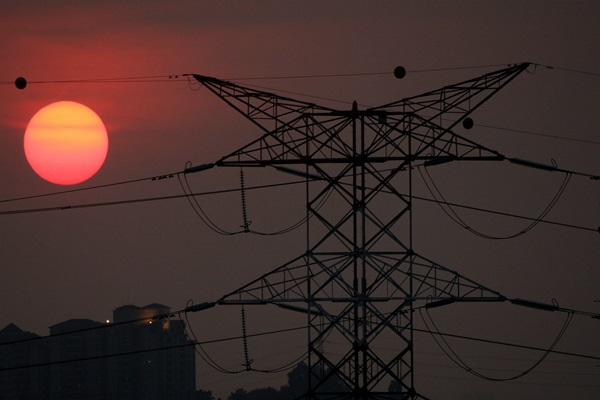News
Power-tariff: time to review power tariff for sustainable future?
By Yong Soo Heong
KUALA LUMPUR, April 4 (Bernama) -- Several discussions have come to the fore in the media lately on electricity tariffs and how the downward movement of international coal and gas prices in recent months should be reflected in lower tariffs.
Various bodies, representing both domestic and non-domestic consumers, are of the view that there is a need for a re-look at tariffs and the mechanism that regulates tariffs.
In the current three-year regulatory period (RP2) between 2018 and 2020, the “budgeted” price for coal is set at US$75 per tonne. Since the surcharge was fixed early last year, coal prices have risen to as high as US$97.8 per tonne at one time before falling to below US$90 per tonne from the middle of 2018.
Given that there is usually a time lag of six months for adjustment to reflect actual fuel prices, there is a likelihood that a lower surcharge could be effected for the next Imbalance Cost Pass-Through (ICPT) in the July-December 2019 period.
The ICPT mechanism has been adopted by many other countries to maintain stability in domestic markets and protect them from international volatility and therefore Malaysia is not alone in this.
Through the IBR (Incentive Based Regulation) framework under the Energy Commission, the government fixes the tariff for a period of three years at a time (known as the regulatory period) in order to ensure market stability. As fuel comprises a major part of the tariff, fluctuations in international markets need to be built into the tariff.
The government reviews the actual fuel prices every six months and makes the necessary adjustment to reflect this in the ICPT mechanism. In most cases, the adoption of an ICPT mechanism, say industry observers, is the first step towards liberalisation of the utility market.
Changes in the fuel prices are reflected as rebates or surcharges, depending on the decrease or increase of fuel prices compared with the budgeted fuel prices set by the government, which is passed onto consumers.
Energy industry observers say that the ICPT mechanism is meant to be fair and transparent and in line with global standards and complies to the agreed upon IBR framework. Since March 2015, consumers in Malaysia have enjoyed a rebate of more than RM6.3 billion until the middle of last year.
Given the present scenario, energy experts feel that it is perhaps a good time to review the entire tariff setting process. The tariff through the IBR framework has and continues to keep the interest of the people or rakyat in mind, given that the tariff for domestic or residential customers was already capped and the surcharge is being subsidised by the government.
Presently, Malaysia enjoys one of the lowest electricity tariffs in the world. Much of this is due to the subsidies on natural gas that the government has provided.
While reducing the cost burden on the rakyat, subsidies can also negatively impact the economy in the long run because money that could be spent on other public amenities is being used to artificially hold down the price of natural gas.
Research has also shown that electricity is a very small driver of the cost of living as it comprises only 2.7 per cent of the overall Consumer Price Index basket. This means that a small increase in electricity prices alone should have only a negligible impact on overall business costs and cost of living.
Therefore, it may be an opportune time to adopt a far-sighted and alternative view that takes into account the long-term sustainability of the country’s economic future. This is something that Malaysians have to seriously evaluate when thinking of Malaysia’s economic health in the long run.
Consequently, it is also important for them to note that electricity subsidies cannot last forever and that a more efficient mechanism needs to be implemented. This is one of the reasons why the government has a subsidy rationalisation plan to reduce allocation on subsidies to enable efficient spending on development programmes.
With climate change and rising temperatures becoming very apparent over the past few months, it is perhaps high-time for Malaysians to take control and adopt more energy efficient practices to reduce energy consumption and hefty utility bills.
For a start, a pertinent and rallying point for action is the proposal by the Minister of Energy, Science, Technology, Environment and Climate Change (MESTECC), Yeo Bee Yin, who has called for government buildings to be energy-efficient so that savings of RM47 billion by 2030 can be attained.
— BERNAMA
Other News
Sarawak Lepasi Sasaran Kapasiti Gabungan Tenaga Boleh Baharu Tahun Ini - Abang Johari

Oleh Nur Ashikin Abdul Aziz
SINGAPURA, 21 Okt (Bernama) -- Sarawak mencapai 62 peratus sasaran campuran kapasiti tenaga boleh baharu (TBB) tahun ini, melepasi sasaran 60 peratus yang digariskan dalam Strategi Pembangunan Pasca COVID-19 (PCDS) 2030.
Sarawak Pacu Pertumbuhan Tenaga Boleh Diperbaharui Untuk Manfaat ASEAN - Premier

SINGAPURA, 21 Okt (Bernama) -- Sarawak komited menyokong peralihan tenaga boleh diperbaharui di Asia Tenggara dengan memanfaatkan potensinya sebagai "Bateri ASEAN," yang akan membekalkan tenaga bersih menerusi sambungan Grid Kuasa Borneo dan ASEAN.
Belanjawan 2025 Percepat Peralihan Kepada Tenaga Bersih - Solarvest

KUALA LUMPUR, 19 Okt (Bernama) -- Belanjawan 2025 merupakan satu langkah ke arah mempercepat peralihan kepada tenaga bersih di Malaysia, kata Solarvest Holdings Bhd.
© 2025 BERNAMA. All Rights Reserved.
Disclaimer | Privacy Policy | Security Policy This material may not be published, broadcast,
rewritten or redistributed in any form except with the prior written permission of BERNAMA.
Contact us :
General [ +603-2693 9933, helpdesk@bernama.com ]
Product/Service Enquiries [ +603-2050 4466, digitalsales@bernama.com ]
